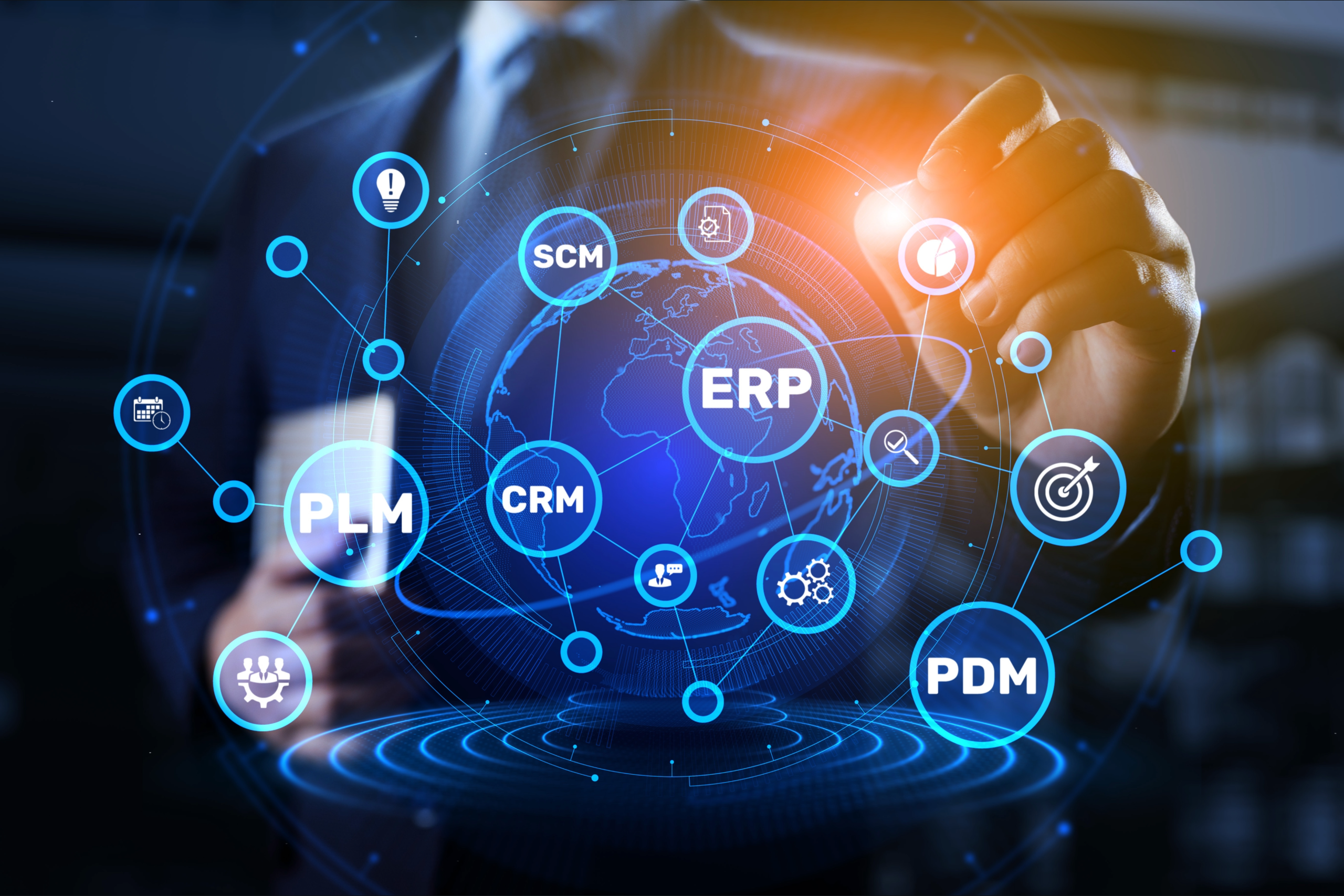An ERP (Enterprise Resource Planning) system is an integrated software solution that centralizes financial processes across various departments, including financial management, accounting, supply chain, human resources, and customer relationship management (CRM).
In the context of financial management and accounting, ERP systems enhance accessibility, manageability, and reliability by providing a unified platform for recording, processing, and reporting financial transactions. These include accounts payable, receivable, general ledger entries, cash flow, budgeting, and forecasting. Acting as a digital hub, ERP software ensures real-time data collection and availability for authorized personnel, thereby improving accuracy, automation, and overall efficiency.
History and Evolution
The evolution of ERP systems in accounting has been transformative, reflecting broader technological advancements and shifting business needs. The introduction of computers in accounting was a gradual process that evolved from basic data processing to complex, integrated systems. Key stages of its development:
- From Manual Bookkeeping to Digital Accounting
Initially, businesses once relied on labor-intensive, error-prone manual bookkeeping. Financial records were maintained through paper-based ledgers, making the process time-consuming and susceptible to mistakes. The introduction of computers in the mid-20th century paved the way for digital accounting solutions, reducing errors and improving efficiency.
- The Rise of ERP Systems
Traditional accounting software only managed financial data. However, businesses grew and became more complex, the need for an integrated system that could unify accounting with other departments like procurement, inventory, and HR became apparent. This led to the development of ERP systems during the 1990’s offering a unified platform for data management across departments, enhancing efficiency and decision-making.
- Cloud-Based ERP – The Game Changer
The 21st century marked the beginning of a new era of ERP solutions that leverage cloud technology, allowing real-time access, remote collaboration, and enhanced security. Companies can now manage financial data seamlessly across multiple locations without investing in costly IT infrastructure.
Various ERP solutions are available, each designed to meet different business requirements. Well-known options include SAP ERP, Oracle NetSuite, Microsoft Dynamics 365, and Odoo. These platforms help organizations in optimizing accounting processes, automating financial tasks, and enhancing decision-making efficiency.
The evolution of ERP systems continues as emerging technologies like artificial intelligence, machine learning, and blockchain are increasingly integrated to enhance predictive analytics, accuracy, and security.
Benefits of ERP in Accounting
- Optimized Financial Management
ERP accounting software helps businesses streamline operations by analyzing sales, marketing, and supply chain data. It provides real-time financial insights through visual reports, aiding risk management and forecasting.
- Efficiency & Accuracy
Standardized procedures in ERP ensure real-time financial reporting, eliminating manual data transfers. Automated auditing, compliance, and reconciliation improve accuracy and efficiency.
- Seamless Integration
ERP centralizes data from CRM, Accounting, HR, and Supply Chain, enhancing collaboration and transparency across various departments, including manufacturing operations.
- Automation & Cost Savings
ERP automates workflows, reducing paperwork, improving payment accuracy, and enabling detailed financial reporting. Businesses save 10-15% on operating costs and 30% on labor expenses, particularly in logistics and order management.
Impact of ERP:
ERP systems have become an integral part for businesses, offering a powerful, cost-effective, and modular approach to integrate various functions such as accounting, sales, inventory, and HR into a single platform.
These systems feature user-friendly interfaces, automation capabilities, and seamless third-party integrations that significantly improve efficiency and accuracy.
With flexible deployment options, whether cloud-based or on-premises, ERP systems support scalability and can grow with the business. Their automation capabilities, including invoicing and real-time reporting, reduce manual work and enhance decision-making, making ERP solutions an ideal choice for businesses of all sizes.
- Improved Workflow
ERP accounting systems enhance workflow by providing centralized access to all data across the organization, automating key accounting tasks, and eliminating data silos and duplication.
- Reduced Errors
Automation minimizes manual entry mistakes in bookkeeping, calculations, and data migration, saving time and reducing financial discrepancies.
- Real-Time Analytics
Customizable dashboards, and reports offer real-time financial insights, improving decision-making.
- Scalability
ERP systems scale with any business, handling increased transaction volumes without significant system overhauls.
- Cost-Effective
ERP solutions offer flexible deployment models—cloud-based or on-premise—with pay-as-you-go options, avoiding high upfront costs while improving operational efficiency.
Whatever the size of a business, organizations cannot solve today’s and tomorrow’s challenges using yesterday’s tools.
ERP solutions are no longer exclusive to large corporations. Small and medium-sized businesses (SMBs) can now leverage ERP to optimize accounting, streamline operations, and improve decision-making.
Why Do Businesses Need ERP for Effective Management?
ERP systems offer seamless integration of corporate processes, providing numerous advantages for businesses:
- Real-time business process monitoring
- Alerts are sent across departments
- Enterprise-level strategy planning
- Centralized, online management accessible from any device
- Flexibility in adding apps as your business expand
- Automated order processing, account updates, and notifications
- Comprehensive manufacturing and supply chain management
- Recruitment and hiring tracking
- Payroll, benefits, and personal information management
ERP systems are essential tools for modern businesses, revolutionizing accounting and financial management. By integrating various functions into a single platform, ERPs enhance efficiency, reduce errors, and provide real-time insights for better decision-making. With cloud-based solutions, businesses can access their financial data anytime, anywhere, without heavy IT infrastructure costs.


























